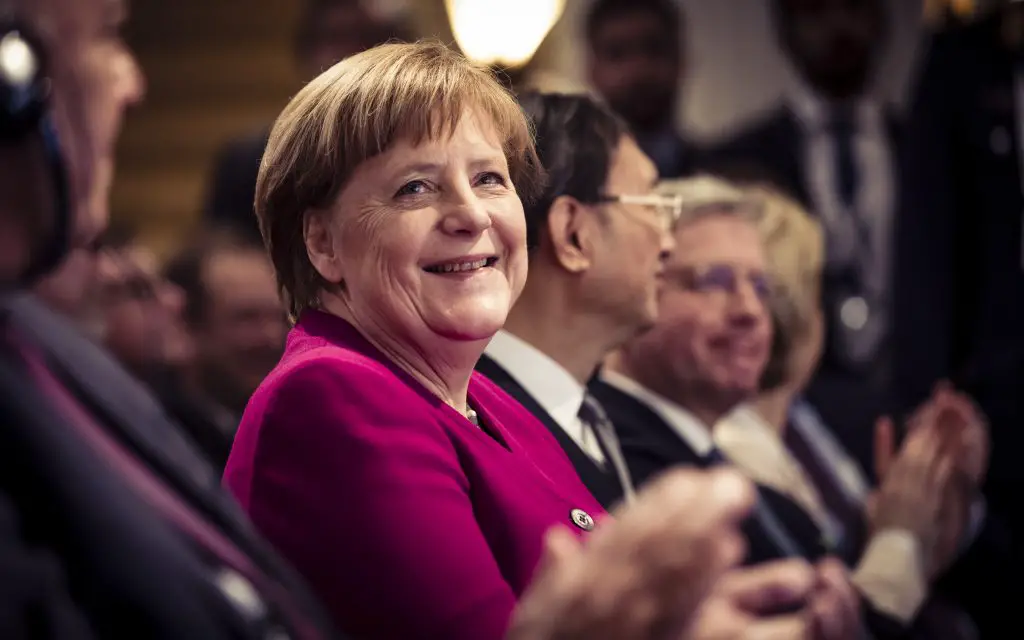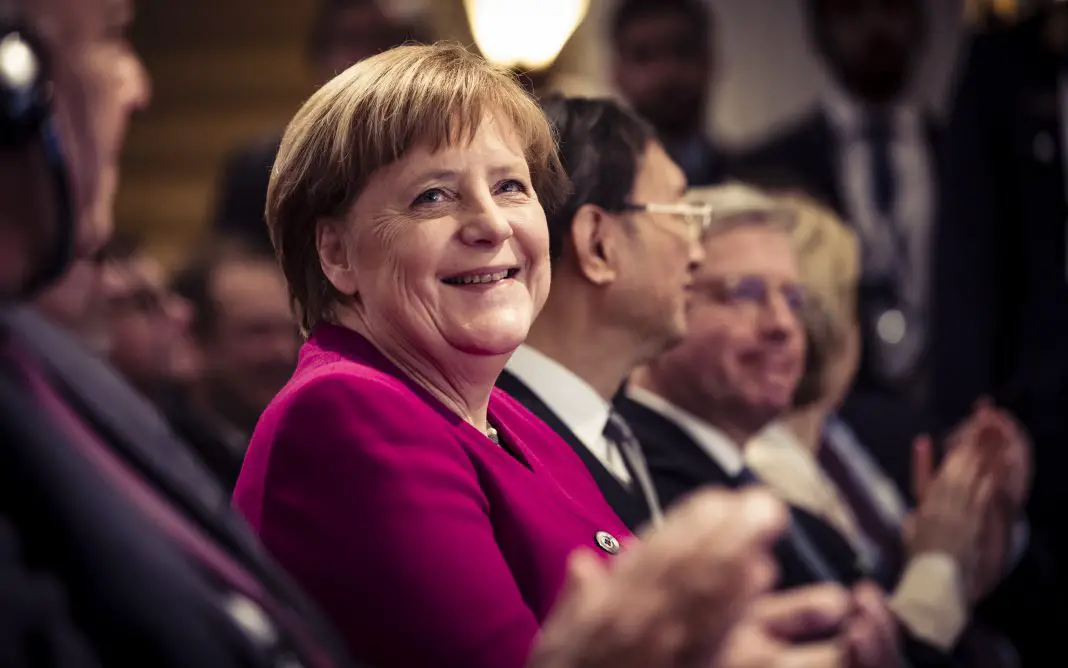Angela Merkel was born Angela Dorothea Kasner on July 17, 1954, in Hamburg in then-West Germany, moving to East Germany as an infant when her father, a Lutheran clergyman accepted a pastorate in Quitzow, Brandenburg. Her father was a theology student and her mother was a teacher of Latin and English. In 1957 they moved again to Templin, where Merkel finished high school in 1973.

In late 1973, she went to Leipzig to study physics at Karl Marx University (now the University of Leipzig). While a student, she participated in the reconstruction of the ruin of the Moritzbastei, a project students initiated to create their own club and recreation facility on campus. At school she learned to speak Russian fluently, and was awarded prizes for her proficiency in Russian and mathematics. She was the best in her class in mathematics and Russian, and completed her school education with the best possible average Abitur grade 1.0. She obtained a doctorate in quantum chemistry in 1986 and worked as a research scientist until 1989.
Merkel entered politics in the wake of the Revolutions of 1989, briefly serving as deputy spokesperson for the first democratically elected East German Government led by Lothar de Maizière. The fall of the Berlin Wall in November 1989 served as the catalyst for Merkel’s political career.
Following German reunification in 1990, Merkel was elected to the Bundestag for the state of Mecklenburg-Vorpommern. As the protégé of Chancellor Helmut Kohl, Merkel was appointed as Minister for Women and Youth in 1991, later becoming Minister for the Environment, Nature Conservation and Nuclear Safety in 1994. After the CDU lost the 1998 federal election, Merkel was elected CDU General Secretary, before becoming the party’s first female leader two years later in the aftermath of a donations scandal that toppled Wolfgang Schäuble.
After the Kohl Government was defeated at the 1998 election, Merkel was appointed Secretary-General of the CDU, a key position as the party was no longer part of the federal government. Merkel oversaw a string of CDU election victories in six out of seven state elections in 1999, breaking the long-standing SPD-Green hold on the Bundesrat.
She was subsequently elected to replace Schäuble, becoming the first female leader of a German party on 10 April 2000, her election coming as a surprise to many observers.
On 30 May 2005, Angela Merkel won the CDU/CSU nomination as challenger to Chancellor Gerhard Schröder of the SPD in the 2005 national elections. On 18 September 2005, Merkel’s CDU/CSU and Schröder’s SPD went head-to-head in the national elections, with the CDU/CSU winning 35.2% (CDU 27.8%/CSU 7.5%) of the second votes to the SPD’s 34.2%. The result was so close, both Schröder and Merkel claimed victory. Neither the SPD-Green coalition nor the CDU/CSU and its preferred coalition partners, the Free Democratic Party, held enough seats to form a majority in the Bundestag. A grand coalition between the CDU/CSU and SPD faced the challenge that both parties demanded the chancellorship. However, after three weeks of negotiations, the two parties reached a deal whereby Merkel would become Chancellor and the SPD would hold 8 of the 16 seats in the cabinet.
Angela Merkel has remained Chancellor of Germany since 2005. Some of her honours to date are; Grand Cross 1st Class of the Order of Merit of the Federal Republic of Germany; Grand Decoration of Honour in Gold with Sash of the Order of Honour for Services to the Republic of Austria; Grand Cross of the Order of the Balkan Mountains; Recipient of the Jawaharlal Nehru Award for International Understanding; Recipient of the President’s Medal; Knight Grand Cross of the Order of Merit of the Italian Republic; Grand Officer of the Order of the Three Stars; Grand Cross of the Order of Vytautas the Great; Knight Grand Cross of the Royal Norwegian Order of Merit; Grand Cross of the Order of the Sun of Peru; Grand Cross of the Order of Infante Henry; Grand Officer of the Order of Abdulaziz al Saud; and Recipient of the Presidential Medal of Freedom; 1st Class of the Order of the White Double Cross.
Read Also:

The Urban Woman Magazine Editorial Team is made up of seasoned writers and editors who have a keen eye for detail and a passion for all things urban. We strive to create fresh, original content that appeals to the modern woman. Our mission is to provide a platform for women to share their stories, experiences and opinions on various issues affecting their lives.

